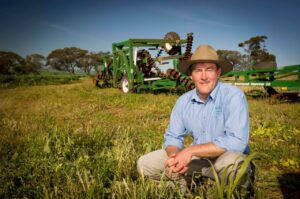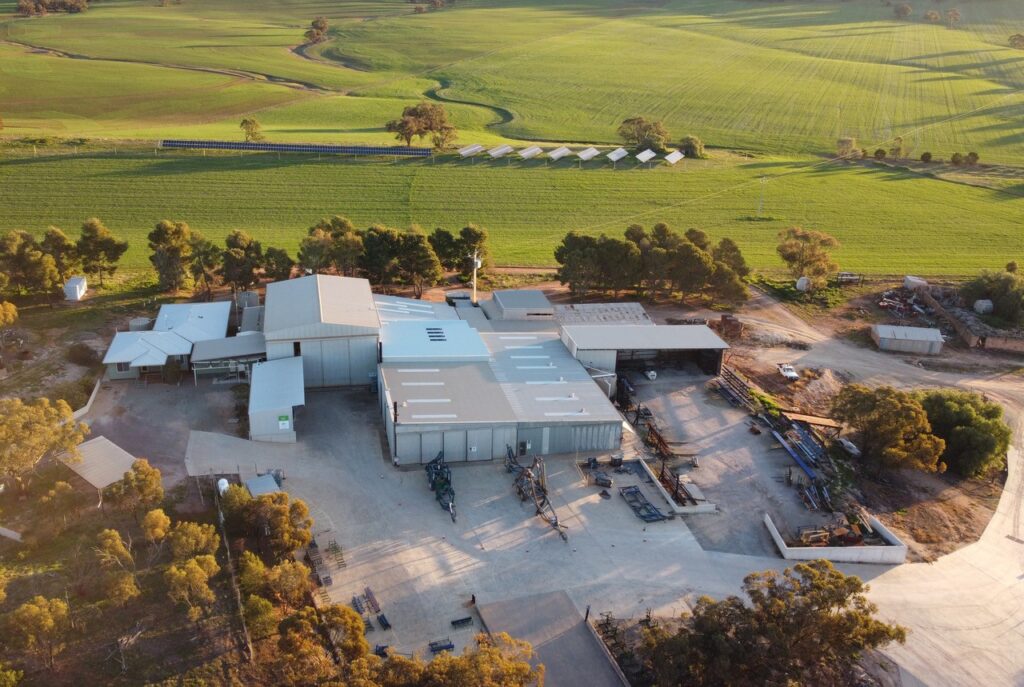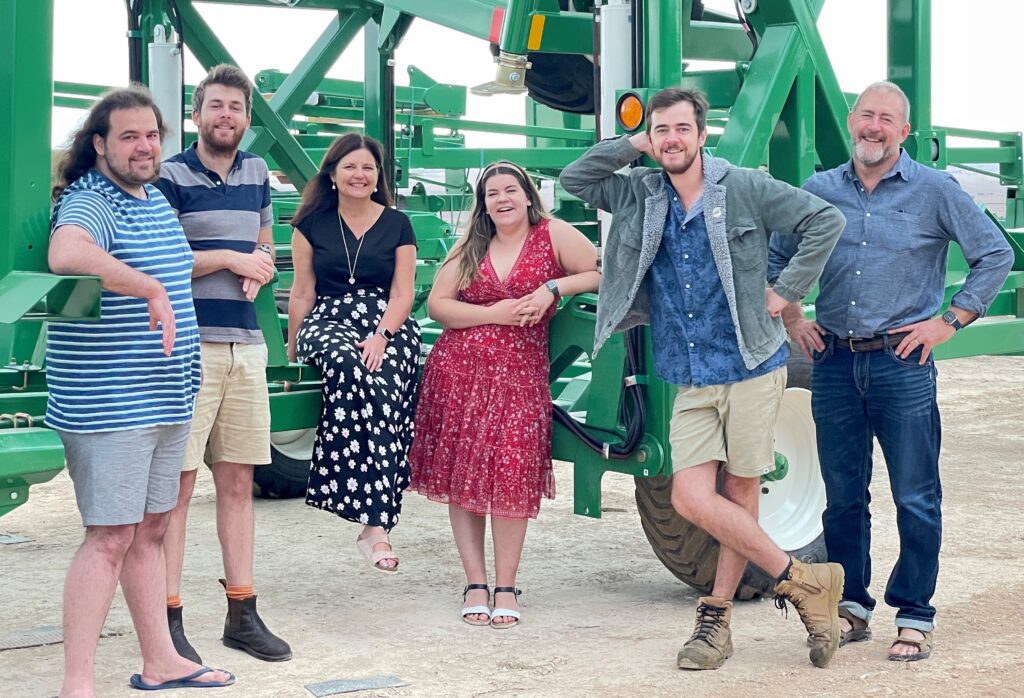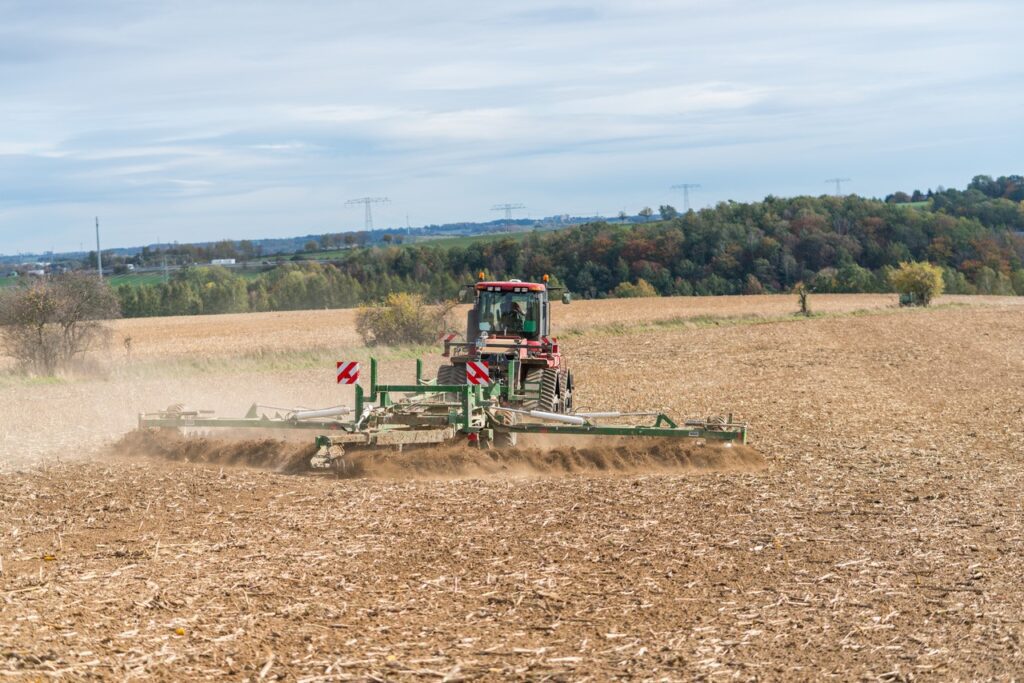
Managing Director, Kelly Engineering Australia
Global CEO Program
IESE Business School, 2013
Sustainability has always been at the heart of Kelly Engineering’s purpose. It began as an enterprise to help keep the family farm economically sustainable. Continue reading to learn more about Shane Kelly’s approach to sustainability.
What started with legumes
“The first products we made were attachments to efficiently harvest legumes, which were planted in rotation to help make cropping farms sustainable. Subsequent products such as the prickle chain harrows and our own disc chain harrows were born to sequester carbon, not that anyone called it that at the time. Soil organic carbon and the biome it supports can be considered the living, breathing tissue that turns mineral clay and sand into soil. In its absence the soils hold little water, release few nutrients and sustain very little production. Our farm, like most farms in northern SA, was contending with ancient and fragile soils, which had been hugely degraded by a century of heavy grazing and traditional tillage. Like all farmers, we were aiming to increase soil carbon, moving the needle toward healthier soils and more sustainable farming.
The Kelly Disc Chain was designed to help farmers return crop stubble to the soil. It has always been possible to return organic matter to the soil, but never convenient. Industrial cropping practices thrive on efficiency and prior to the last decade or so, keeping stubble in the paddocks disrupted the efficiency of cropping machinery and systems. Modern machinery and practices now embrace returning the crop stubble to the soil. It is fabulous that the practices of the fringe dwellers (or perhaps the bleeding edge) have become mainstream. This does raise a question for our company: what role does the Kelly Disc chain play now that everyone has at their disposal the means to manage their residue and to preserve their soil carbon?”
The notion of sustainability
“Sustainability commands evolution and challenges us to reframe our assumptions. Farming is a complex and dynamic business; fortunately for Kelly Engineering, farmers have many problems to solve. We’re perhaps lucky that our invention is versatile and nuanced enough that we’ve been able to follow the focus from stubble management through seedbed preparation to weed control, sustaining the relevance of the product and the company. Community sustainability has also been central to our operation. Regional towns in SSA were once populous and I’d like to think vibrant. Today, urbanisation has forced agricultural efficiencies, and fabulous transportation and communication has reduced rural populations. With the people go the viability of local services, and the local staff to run them. It’s not all bad, but many small towns and some larger ones struggle with the notion of sustainability. Many brilliant exceptions do exist, and the aforementioned communication and transportation makes it easier than ever to live and work in regional areas. In the face of all these challenges, the Kelly family chose to keep the business at Booleroo Centre. The choice was almost automatic, because for us sustainability is also about communities. Providing employment for 10 per cent of a town’s population inevitably has an impact, and with that comes responsibility.”
A family affair
“Kelly is a family business now 35-years-old. My father Peter and mother Audrey, followed by my wife Jo and I, have steered the business through the decades. We have four children, three of whom work as marketers and fabricators. Succession planning started years ago and it is independent of the children, they have the opportunity in a commercially competitive environment but not the obligation, to participate at any level. The responsibility to our staff, our relationships and our customers is too great to mess around with family niceties. In reality we’re a business owned by a family, with family members in a range of positions. We have a professional management structure and career opportunities.”
The ILF opportunity
“As leaders we all have many responsibilities, key amongst them the need for continuous improvement and education. Following the sustainability theme, to persist as effective leaders we need to be perpetually learning. I really enjoy the outcomes of being challenged, if not always the act. ILF threw me an extraordinary challenge in encouraging me to consider the Global CEO course. As the absolute minnow in the room I was nonetheless welcomed and concepts and principles discussed and discovered have given me insight and confidence. Innovation isn’t about invention, it’s about creating value from ideas. The ideas that came from the exposure have found their way into our business and personal endeavours. An understanding of myriad new technologies and concepts gave me a head start as these things became mainstream. Taking the unknown out of new ideas gives comfort in adopting and adapting them to your own circumstance. We adopted ideas like minimum viable product from the tech world and applied it in our development. Launch early and iterate rapidly.”
The end goal
“Businesses, consumers and governments now have another responsibility to work toward the ultimate sustainability goal. It is up to us to influence our teams, suppliers, customers and leaders in seeing and acting on the global challenge of climate change. Our responsibilities stretch farther than departing from a burned carbon economy, however. At Kelly, we have embraced the UN Global Compact, and are using the most relevant UN Sustainable Development Goals to guide our efforts in contributing to a sustainable world. I encourage all businesses to become familiar with the 10 basic tenets of the agreement:
- The elimination of all forms off forced and compulsory labour
- Do not be complicit in human rights abuses
- The effective abolition of child labour
- Freedom of association and the right to collective bargaining
- Work against corruption in all forms
- Elimination of discrimination in respect of employment and occupation
- Undertake initiatives to promote greater environmental responsibility
- Encourage the development and diffusion of eco-friendly technologies
- Support a precautionary approach to environmental challenges.
- Support and respect the protection of human rights.
By adopting these tenets, our businesses, our communities and our country will not only be sustainable, but also the kinds of places where we want to live.”



